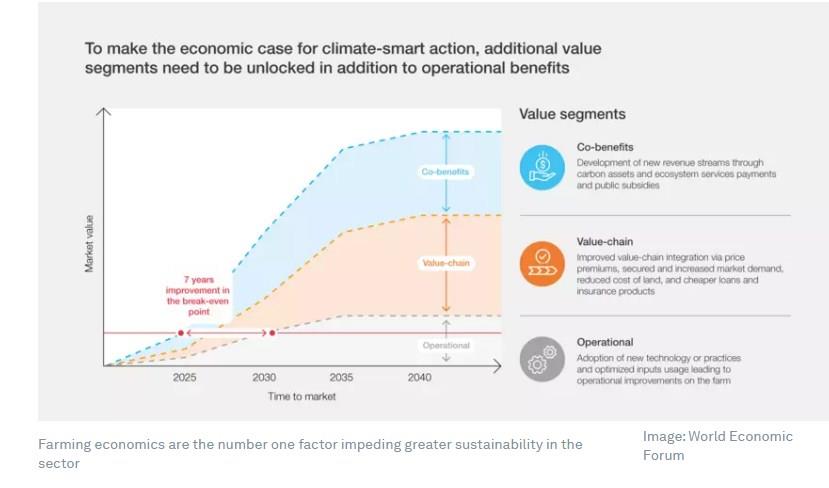by Lisa Sweet and Alexia Semov*
The conflict in Ukraine has put food systems, and their fragility, at the top of the global agenda. Together, Russia and Ukraine account for roughly 30% of global wheat exports, while Russia is the world’s top fertilizer exporter. Fertilizer, animal feed (mostly wheat and maize) and food prices have already climbed to record levels as war-related disruptions and sanctions squeeze key inputs, labour and logistics for global agricultural production. EU leaders are already talking about a looming wide-spread food security crisis and making plans to strengthen food sovereignty in the region. While such plans are reassuring, talks about doing so by giving up on EU’s green ambitions are not.
The most recent Intergovernmental Panel on Climate Change (IPCC) Assessment Report warns that climate change and related biodiversity loss “have affected the productivity of all agricultural and fishery sectors, with negative consequences for food security and livelihoods”. It is widely recognized that planetary systems are dangerously close to breaking point. Choosing to reorient policies and subsidies solely towards ensuring food supplies in the near term, at the cost of safeguarding long-term resilience, would make the security of our food systems an illusion.
Soil degradation is costing the EU €100 billion per year currently, and climate change could reduce crop yields by 20% by 2050. The Farm to Fork strategy, which sits at the heart of the European Green Deal, is part of the answer to this crisis, precisely because it aims to restore EU’s soil health and improve its adaptation to climate change through “climate-smart action”. It also sets targets to reduce the region’s reliance on the environmentally degrading use of synthetic fertilizers, a goal which becomes even more meaningful in light of farmers and food prices struggling to keep up with recent fertilizer price hikes.
A farmer-centric transition
A recent report by the World Economic Forum outlines the pathways for a farmer-centric food systems transition in the EU. It finds that if an additional 20% of European farmers adopt climate-smart practices, by 2030 the EU can reduce its annual agricultural greenhouse gas emissions by an estimated 6%, restore soil health of over 14% of its total agricultural land, thereby improving biodiversity and food systems resilience, and – depending on level of implementation – add between €1.9 billion and €9.3 billion annually to farmers’ incomes.
The report, developed in collaboration with Deloitte and NTT Data, builds off the insights generated by EU Carbon+ Farming coalition, a regional coalition of the 100 Million Farmers platform. The coalition brings together 14 organizations from across the food value chain to work with farmers, who form the base of the food chain, and scale climate-smart action across the EU. They aim to support the transition at the speed and scale required to ensure the future security of the region’s food systems. The report shares findings from consultations with 1,600 farmers from seven countries, which together represent 75% of the EU’s farmer base, to understand what barriers and solutions are necessary to mainstream the adoption of climate-smart action.

The new research finds that farming economics is the number one factor impeding the shift to sustainability. With EU farmer incomes about 60% lower than non-farming incomes, and farmers now routinely facing increasing insecurity due to weather-related events, asking them to bear the additional financial cost of the transition is unrealistic. Furthermore, given the rewards of the transition are shared by all in areas such as greater food security, increased biodiversity and improved ecosystem services, asking farmers to shoulder this burden alone is inequitable.
Sharing the agricultural burden
Currently, most farmers undergoing the transition have access only to operational-level improvements, such as optimized input use or reduced yield volatility to make the case for the drive towards sustainability. But the transition takes time, and a multi-year payback period does not provide farmers with the proper incentives for them to change. Therefore, private and public stakeholders need to contribute to creating additional revenue and incentive segments that reward climate-smart action.
These can be at the value-chain level on the one hand, whereby all value-chain players are made to contribute through elements such as procurement guidelines to promote climate-smart crops, purchase agreements that guarantee certain prices and quantities to farmers or cheaper loans for climate-smart action, and co-benefits valuation on the other, whereby beneficial outcomes from action that are not directly related to yields are compensated, through carbon or other ecosystem service credits. By unlocking these additional value segments, the study finds that the payback period for climate-smart action could be reduced by approximately seven years, creating a more compelling and faster case for change.
This is where the EU Carbon+ Coalition aims to intervene, by launching an integrated effort that builds a stronger economic case for the transition and addresses the complex and interconnected challenges faced by farmers. The value-chain effort will include initiatives around financing and de-risking, supportive procurement rules, technology innovation for farm measurement, verification and reporting, and farmer training, among others. Ultimately, these initiatives are meant to help meet the EU Green Deal goals, which are instrumental to empower European food systems and its stewards: the farmers.
The Ukraine crisis has brought the importance of food systems centre stage globally. It is important to continue emphasizing their importance by acknowledging that there is no pathway towards meeting our global Sustainable Development Goals that does not include transitioning towards net-zero, nature-positive and resilient food systems.
*Head of Future of Protein, COVID Response& Food-Health, World Economic Forum and Community Lead, Food Nature, World Economic Forum
**first published in: www.weforum.org




 By: N. Peter Kramer
By: N. Peter Kramer

